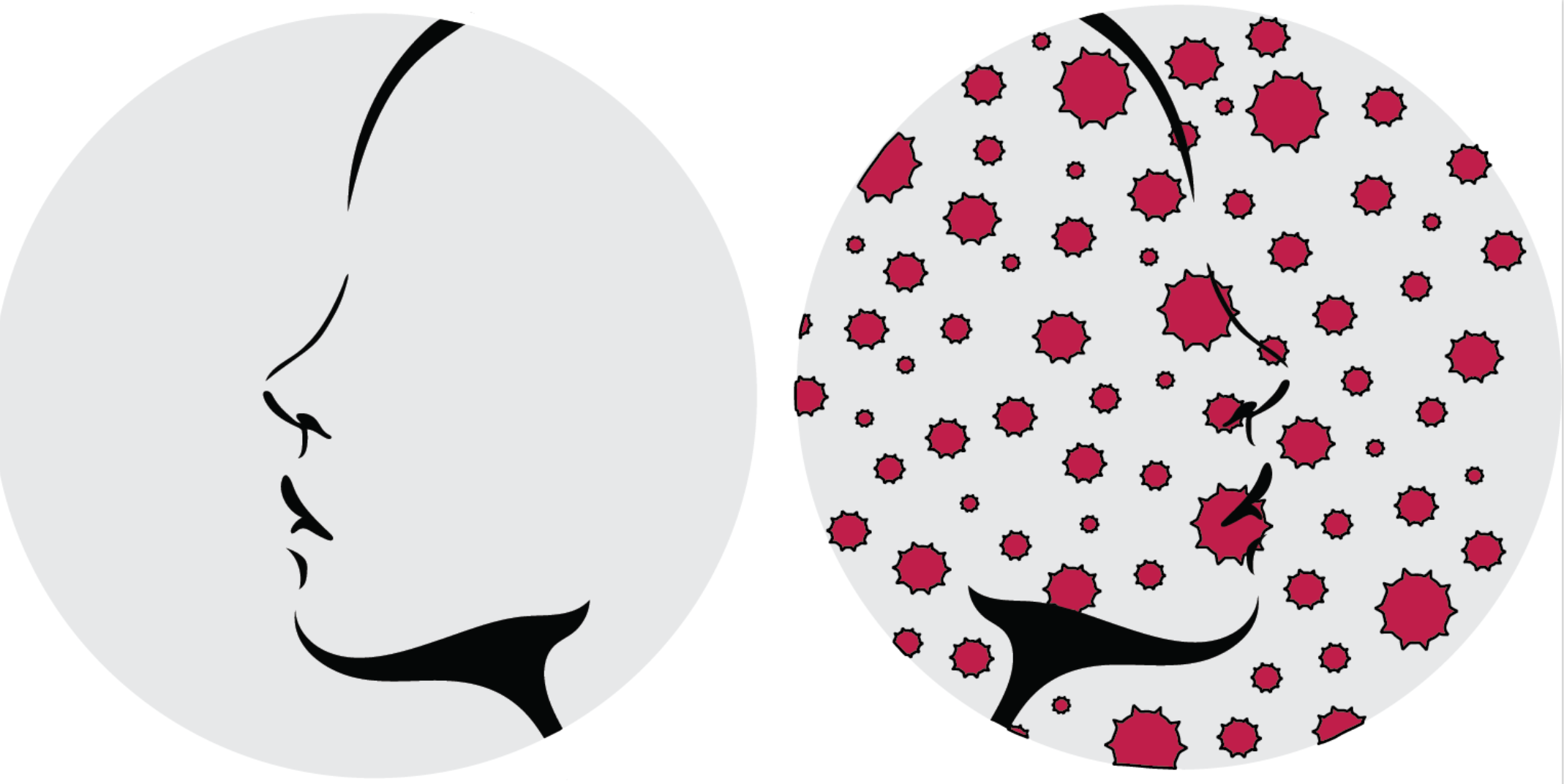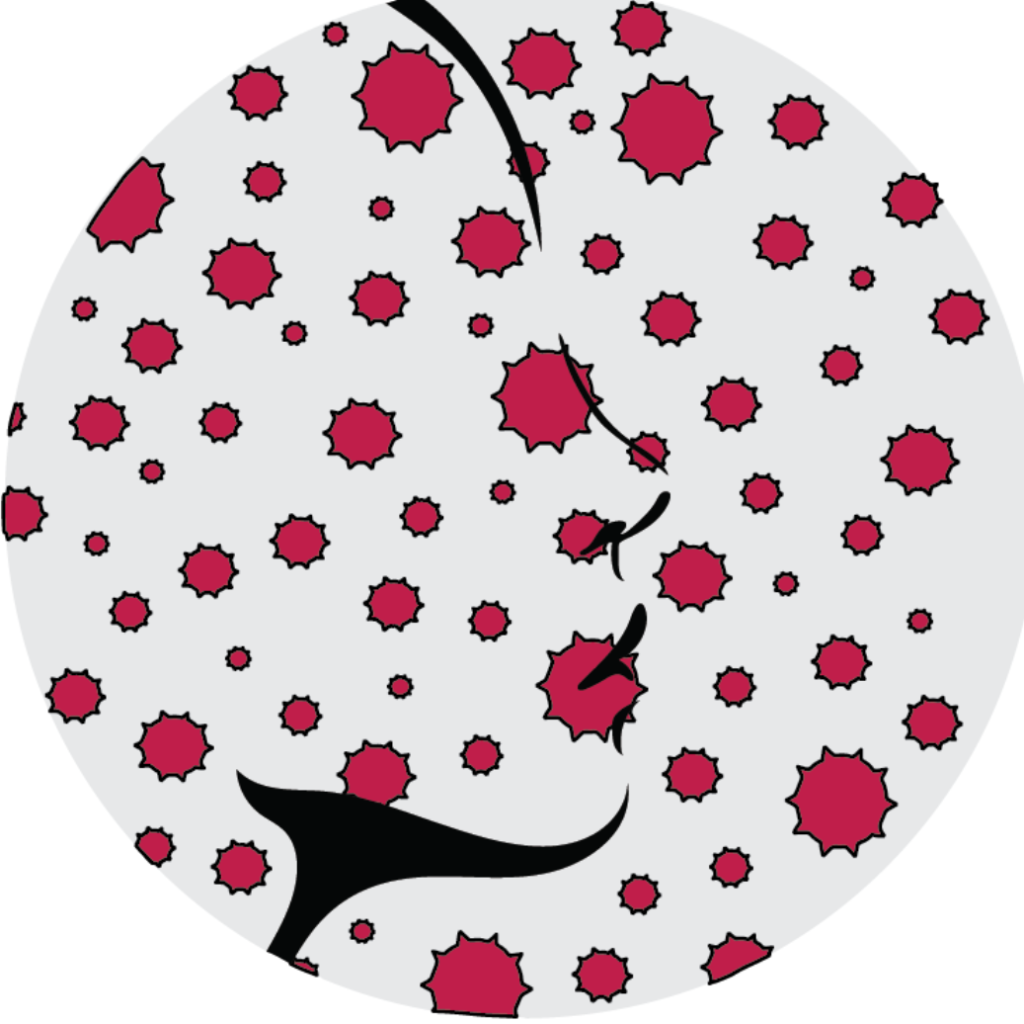
By Isabella Davitt
Associate Editor

While few students have tested positive for COVID-19 in the first eight weeks of the semester, that hasn’t prevented another problem from cropping up on campus — stigmatization.
Of the 1,347 students living on campus and the 4,674 PCR tests conducted throughout the semester so far, we have experienced 9 cases of COVID-19. When the first positive case was reported, the president sent out an email. “We must not stigmatize anyone who tests positive. A positive test can result through no fault of the individual,” President Lorraine Sterritt wrote on Sept. 24.
Despite the messages students have received from administration reminding us that we must not stigmatize those affected by the Coronavirus, when the community was notified of the first positive case, there was an unspoken fear of where it came from, who had it, and what might happen next. Although there is a protocol set in place for the presence of positive cases on campus, students felt that the communicated information was unclear and not formal enough to protect the student body, particularly the first student who tested positive.
“I definitely felt a sense of panic and I felt like something had gone wrong. Something bad was happening and I don’t think it should’ve felt that way,” said Tess McCabe ’21. Some classes immediately got switched to meet on Zoom, rumors started to flutter, and there was a palpable switch in the air on campus.
“I think being back on campus with COVID-19 has really affected the way students judge others about the situation we are all in as a community,” said Kerri Ann Campbell ’23.
“Imagine you’re that person. What would you want? How would you like to be treated?” asked Kathy Butts, director of counseling at Bergeron Wellness Center. “It could be any of us.”
Amidst the fear and the stress that the COVID-19 pandemic places on students, it is important to remember that there is a set protocol that the college is to follow.
Upon reporting a positive case to The Vermont Department of Health, the school steps aside so the state can conduct contact tracing. Individuals will be contacted if they need to quarantine. The state, which has only had 1,987 cases and 58 deaths in the last seven months, has a high success rate with their contact tracing in terms of keeping the spread under control. However, fear and uncertainty create another story in the public perception.
The singularity of the first case was highlighted not only in person, but also in the virtual world. “Spoof accounts on Instagram, specific to the college, made statements about students and posted memes about the first positive case we had, which stigmatized the case even more,” said Campbell.
“I think we are living in a time where there is a lot of fear in our culture, and everyone is dealing with a collective level of it,” Butts said. “We’ve been through a traumatic experience as a country and we’re still going through it.” This fear can manipulate the way community members think, act, and feel towards each other. On campus, it comes in the form of stigmatization. “People are looking for someplace to put that fear and a place to blame it and unfortunately that can land on a person who tests positive for COVID-19.”
A common stigma that students had about the first case was how the student contracted the virus. “I think people assume that if someone tests positive, the reason is because they somehow aren’t doing what they’re supposed to be doing, and that’s not always the case at all,” said Jeff Vincent, assistant dean of students.
The COVID-19 virus can be transmitted and contracted in many ways, some we aren’t even aware of yet. “We’re in the stages of still trying to figure out exactly how this illness spreads and how there are super spreaders and there are people who don’t spread it at all…so we’re still trying to figure this whole thing out, I think we are just afraid,” Butts added.
“We’re all human,” Butts said. “When something happens that’s sort of dramatic, like a positive case on campus, we all get activated to want to figure it out. I think if everyone could just stay in their lane, and trust the protocol, we’re all going to be fine.”


